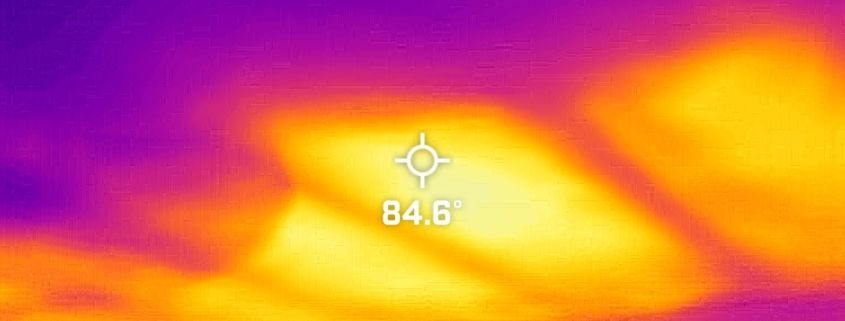Home Inspection News: What Makes Us The Best Choice for Your Home Inspection Services in Knoxville and Surrounding Counties

Buying a home is a significant financial investment that requires careful consideration and planning. Whether you are a first-time homebuyer or a seasoned real estate investor, conducting a professional home inspection is crucial to ensuring the property’s safety, integrity, and value.
Professional home inspections thoroughly examine a home’s structural, mechanical, and electrical systems as well as its exterior and interior components. Licensed and certified home inspectors typically conduct them with the knowledge and expertise to identify potential issues or defects that may affect the property’s condition, safety, or value.
Why is Professional Home Inspection Important?
There are several reasons why a professional home inspection is essential when buying a home. First, it can uncover hidden problems that may affect the property’s value, safety, and livability. For example, a home inspector may discover mold or water damage that could be a health hazard to the occupants. Second, a home inspection can help you avoid expensive repairs in the future. If a home inspector identifies potential problems during the inspection, you can use this information to negotiate with the seller to make repairs or lower the property price. Third, a home inspection can give you peace of mind. Knowing that a professional has thoroughly examined the property and identified potential issues could help you decide whether to proceed with the purchase.
If you are planning to have a professional home inspection done, here are some things to expect:
The inspection process
A professional home inspection typically takes two to four hours, depending on the size and complexity of the property. The inspector will visually examine the home’s exterior and interior, including the roof, foundation, walls, doors, windows, plumbing, electrical, heating, ventilation, and air conditioning (HVAC) systems. The inspector will also inspect any additional structures on the property, such as a garage, shed, or pool, if applicable. The inspection will be conducted according to the standards of practice set forth by the International Association of Certified Home Inspectors (InterNACHI), the leading home inspection association in the United States.
The inspection report
After the inspection, the home inspector will provide you with a detailed inspection report summarizing their findings. The report will include a list of any defects or deficiencies found during the inspection and recommendations for any repairs or maintenance that may be needed. The report will also include photos and diagrams to help illustrate any issues identified during the inspection. The inspector will typically review the report with you and answer any questions you may have about the property’s condition.
Common issues found during a home inspection
During a professional home inspection, the inspector will look for any issues or defects affecting the property’s safety, integrity, or value. Some common problems that may be found during a home inspection include the following:
- Roofing and Gutters: The inspector should examine the roof’s condition, including any visible damage or signs of wear and tear. They should also inspect the gutters for proper installation and functionality.
- Exterior: The home’s exterior should be inspected for any visible damage or signs of deterioration, including siding, windows, doors, and trim.
- Foundation and Structure: The inspector should assess the foundation and structure of the home for any visible cracks, settling, or other damage that could indicate structural issues.
- Electrical System: The electrical system should be inspected for proper installation, grounding, and functionality. The inspector should also look for any outdated or unsafe wiring.
- Plumbing System: The plumbing system should be inspected for any visible leaks, corrosion, or other issues that could affect the system’s functionality.
- HVAC System: The heating, ventilation, and air conditioning (HVAC) system should be inspected for proper installation and functionality. This includes the furnace, air conditioning unit, and ductwork.
- Appliances: If the home has appliances, such as a stove, dishwasher, or refrigerator, these should be inspected for proper installation and functionality.
The importance of a professional home inspection
A professional home inspection is an essential step in the home-buying process. It can help you identify potential issues or defects affecting the property’s condition, safety, or value. It can also give you peace of mind knowing that you are making an informed decision about your investment. A professional home inspection can also help you negotiate with the seller if any repairs or maintenance are needed. Depending on the severity of the issues identified during the inspection, you can request that the seller make repairs or offer a credit toward the cost of repairs.
Conclusion
A professional home inspection can help you identify any potential issues or defects that may affect the property’s condition, safety, or value and give you peace of mind knowing that you are making an informed decision about your investment. So, if you plan to buy a home, schedule a professional inspection to ensure you make a wise and informed decision.









